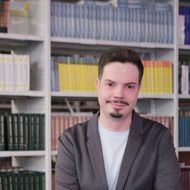Bachelor's Programme in Political Science Opens New Regional Track
Starting from the next academic year, the Bachelor's programme 'Political Science and World Politics' will open a fourth regional track, this time covering the countries of Latin America. Students who choose this track will be able to immerse themselves in the political processes of the region and study a choice of Spanish or Portuguese.

In the third year, students of the Bachelor's programme 'Political Science and World Politics' choose an educational track that allows them to focus on the socio-political development of a certain region. Each track includes three disciplines which are taught in the third and fourth years of study.
Students who enrol in the programme in 2024 will be able to choose one of four regional tracks, one of which is devoted to Latin America. The track will cover political processes and integration projects in the region, as well as relations between Latin America and Russia. Students will also have an opportunity to study Spanish or Portuguese.
Yury Kabanov, Academic Supervisor of the Bachelor's programme 'Political Science and World Politics'

Our programme has regional tracks for several reasons. Firstly, it is a way to help students form expertise in a certain region. Such knowledge will be in demand by companies looking for new markets and state organisations engaging in international cooperation. Secondly, the choice of track is largely related to students' preferences—it is an opportunity to learn something new about the country, culture or language you are interested in. That is why we try to expand the range of courses devoted to various world regions.
Our students can learn both Spanish and Portuguese. That is why opening a new track on Latin America in particular seems a logical step. In different years, our programme has had students and graduates from Central and South America, including Venezuela, Colombia and Mexico. Besides, interest in this region is increasing at the moment. HSE University-St Petersburg is developing cooperation with universities in Latin America, and we hope that this track will become another important aspect of the international dimension in our programme.
Students of political science currently study three regions: Europe, post-Soviet countries, and China. They also choose a second foreign language from Spanish, Chinese, German, Portuguese or French. Language studies begin in the second year.

